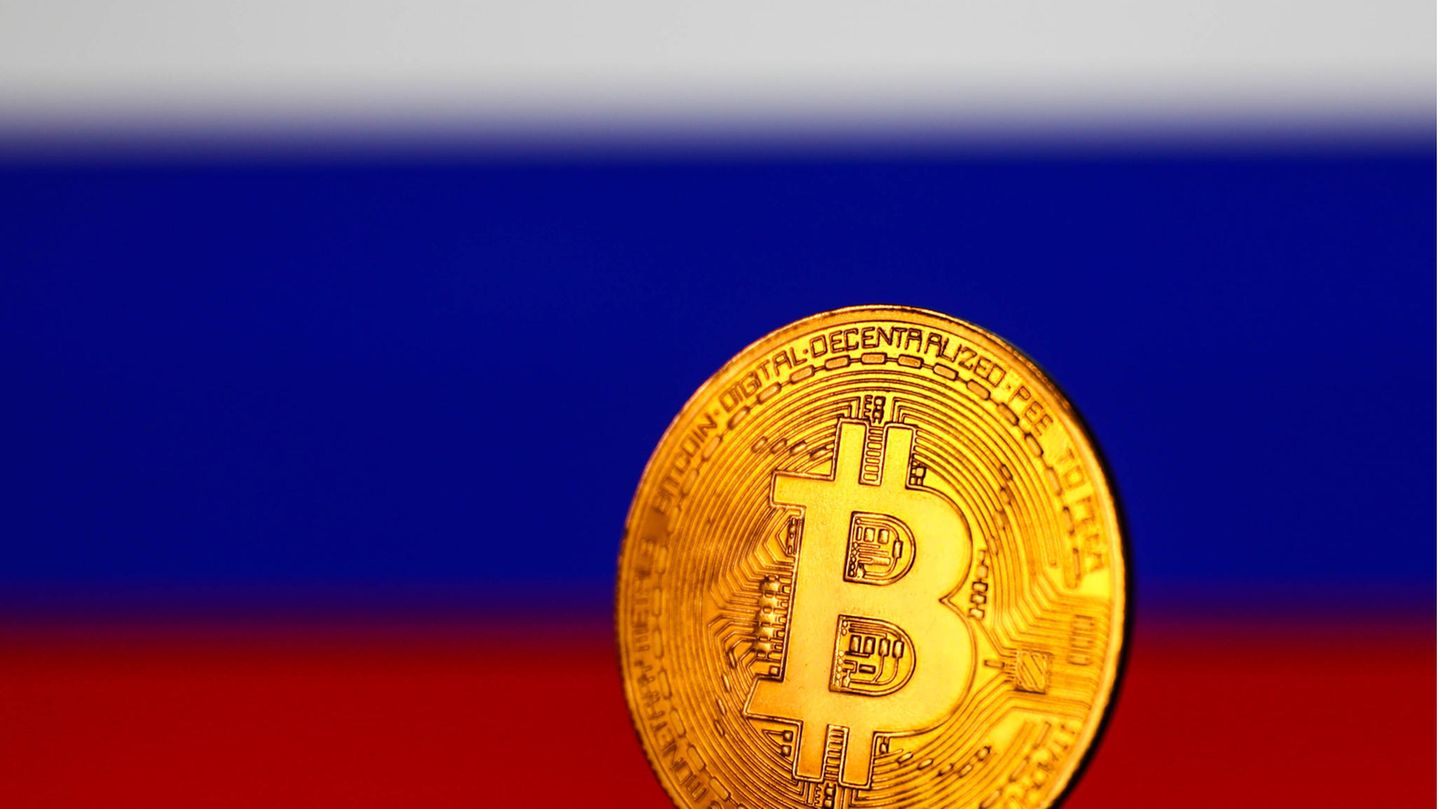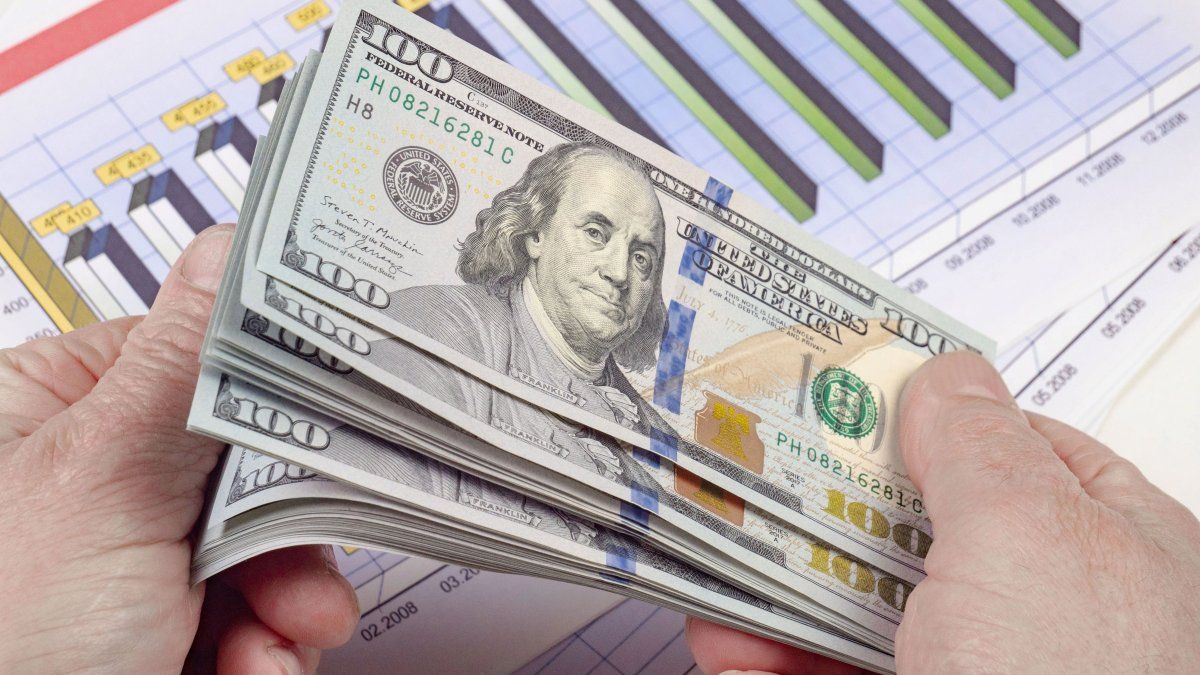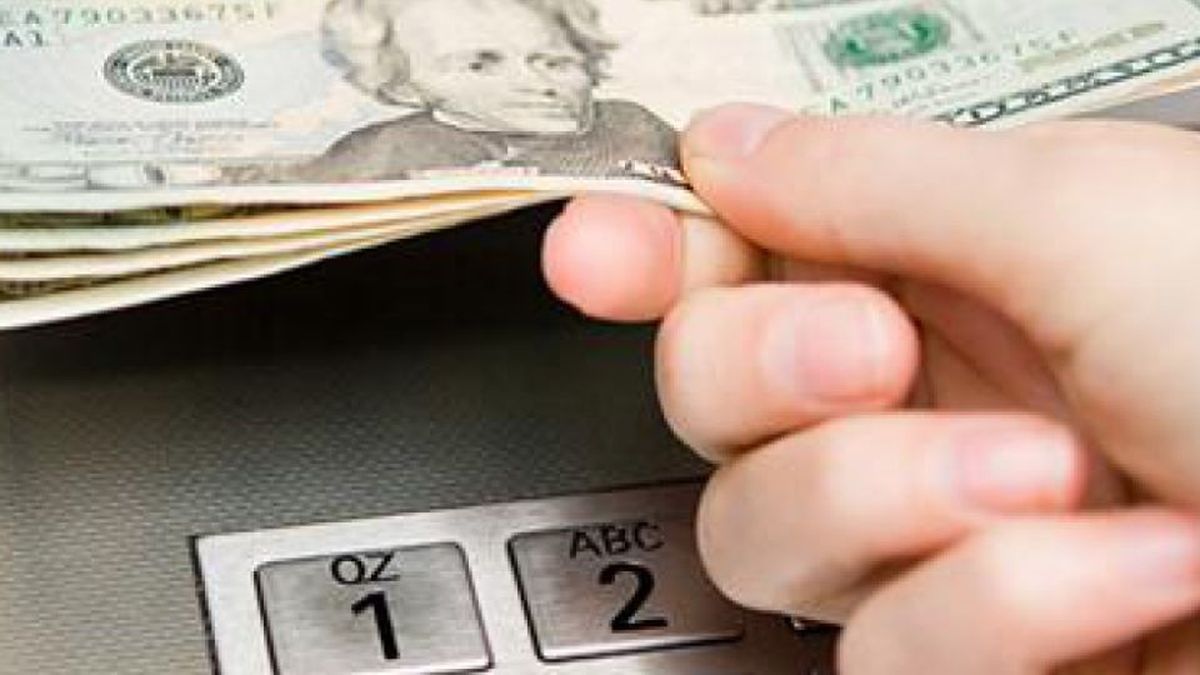The Russian government recently made a U-turn in cryptocurrencies. The suspicion: Moscow could circumvent western sanctions with Bitcoin. Analysts see another reason.
Just three months ago, Russia wanted to ban cryptocurrencies completely. Now, after the war of aggression against Ukraine, there is suddenly no more talk of it. Russia even wants to deliver energy in exchange for bitcoin, explained senior Duma deputy Pavel Zavalny. A few days ago, Prime Minister Mikhail Mishustin also campaigned for more acceptance of cryptocurrencies.
The crypto markets are immediately influenced by such statements: after Mishustin’s announcement, the Bitcoin price briefly rose by more than 2000 US dollars on March 27th. Cryptocurrencies already benefited after the invasion of Ukraine and the exclusion of Russian banks from the Swift system. In the past few weeks, the stock exchanges have recorded significantly higher trading volumes and hash rates, i.e. computing power, in Russia – in some cases by more than 900 percent. All of this drives prices up in the short term.
The suspicion: In order to circumvent western sanctions, Russia could simply switch to cryptocurrencies. Dollars, euros or yen would then no longer be necessary – not even precise data on the origin of the money. Only: Can Russia even have a strategic interest in Bitcoin? Analysts still argue about this question.
Bitcoin trading volume increases by 900 percent
One thing is certain: no circumvention of sanctions can be derived from trading volume and hash rate alone, explains Timo Emden from Emden Research to Capital. Two points should be distinguished: cryptocurrencies as a means of payment and as an asset.
Western countries are closely observing the first variant in particular. In the meantime, Russians have exchanged 900 percent more rubles in digital currencies. However, the trading volume within the crypto scene flattened out again after the peak at the beginning of the war. Institutional Russian investors transferred only 62 million US dollars in the first four weeks of the war.
The data does not show that Russia is increasingly trading goods via digital currencies. “If it had come to a really big re-parking, then we would have seen other climbs,” says Emden.
Rising Importance of Cryptocurrencies: Have Oligarchs Invested in Bitcoin?
It is more realistic that Russian private individuals protect their assets. Sanctioned oligarchs could also be among them – but this is difficult to prove due to the blockchain. “My guess is that the oligarchs have already made off by investing funds in crypto assets,” explains Emden.
In other words, private individuals in particular were responsible for the first peak. Once exchanged for Bitcoin, the payment flows can hardly be traced – unless the investigators know the person behind the wallet ID. The blockchain shows transparently who transfers how many coins and when. But: Whoever is behind the ID is sometimes anonymous and the ID consists of up to 35 characters.
The EU now wants to change that and is relying on the so-called “know-your-customer” (KYC) procedure. Transactions in Bitcoin, Ether and other crypto currencies should be traceable in a similar way to traditional transfers – that is the goal of the Transfer of Funds Regulation (TFR).
This is not a direct reaction to the Russian war of aggression, CDU MP Stefan Berger told Capital. But he also noticed more intensive discussions, which probably also influenced last Thursday’s decision. The low trading volume of 62 million dollars does not speak for a systematic circumvention of sanctions, says Berger. In this respect, he sees the Bitcoin offensive as a flash in the pan for small Russian investors.
Russia is working on the digital ruble
Analyst Timo Emden also does not believe in sustained interest in crypto from Russia. “Right now they’re using Bitcoin more as a marketing tool. It’s new, it’s independent of the state. That sounds good.” In addition, the payment speed is higher than with IBAN transfers.
Rather, Moscow is concerned with its own digital currency – if you will, an e-ruble. The western countries, and above all China, are also working flat out on their own projects. “It’s like a race to land on the moon. And the question is which system will Russia connect to?”
In this respect, Bitcoin could become a test run for Russia, because the systems work in a similar way. Both run on blockchain technology, the only difference is that Bitcoin and Co. are organized in a decentralized manner. An e-ruble or e-yen would be issued by the central bank.

Putin wants to free Russia from dollar dominance
The advantages of a digital currency are obvious: the administration costs per e-ruble tend to be zero, and it could also be easily integrated into other payment systems. And: With a digital currency, Russia could become less dependent on the US dollar. That is a declared goal of Russian President Vladimir Putin, who could actually use it to effectively circumvent sanctions.
This article first appeared here under .
Source: Stern
Jane Stock is a technology author, who has written for 24 Hours World. She writes about the latest in technology news and trends, and is always on the lookout for new and innovative ways to improve his audience’s experience.




